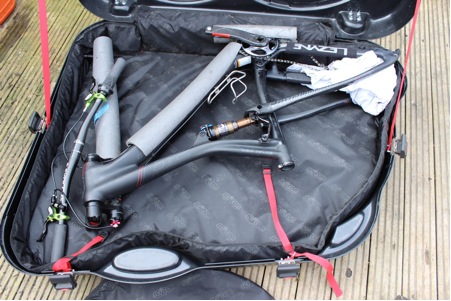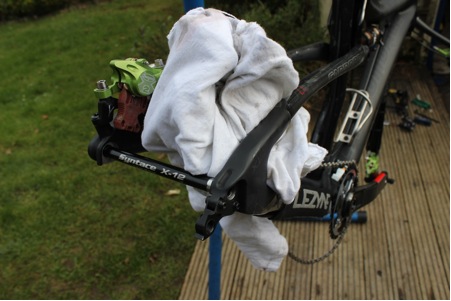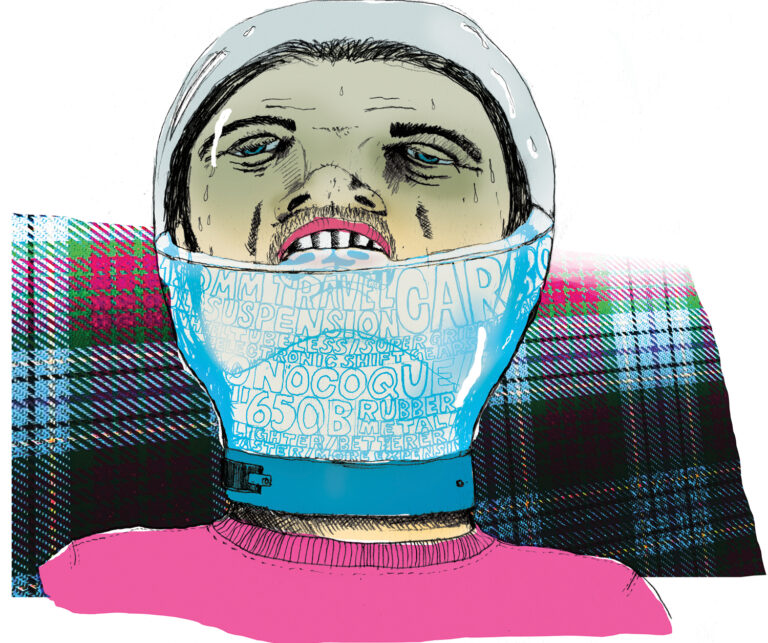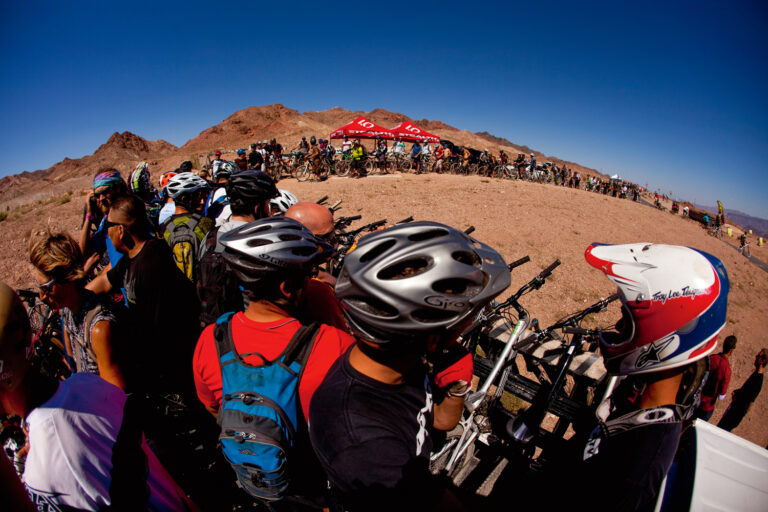
Words: Tim Dunford (Team Mountain Trax – Vauxhall Motors)
In the middle of another dark British winter with the weather distinctly chilly and damp it’s very tempting to hop on a plane and head to a sunnier and warmer climate to hit some dusty trails. You may be able to hire a bike when you get there but this isn’t always an option and it’s unlikely you’re going to feel at home riding anything other than your own bike. It can be a bit daunting entrusting your pride and joy to airport baggage handlers but with some careful packing and planning you’ll be cruising dusty singletrack in no time.
All airlines require you to pack your bike before you fly. Many people use a cardboard bike box and provided you use plenty of bubble wrap it’s likely the bike will survive unscathed. Baggage handlers aren’t always as careful with your bike as you might like though so it’s worth considering a specific bike box or bag for added peace of mind.
There are two alternatives to the humble cardboard box, purpose made bike bags or hardshell boxes. Bags have a number of advantages. They are generally considerably cheaper and are much lighter too which is worth considering as you’re likely to be restricted by the airline’s weight limit. Bags are also a lot easier to store both at home and when you get where you’re going. There are loads of choices of bags but most are typically thick, padded affairs often with separate compartments for wheels and other bits and bobs. These are definitely a good idea as cassettes can make a real mess of your paintwork. Some bike bags like the EVOC come fitted with a structural frame which gives more support and will help to prevent anything getting crushed.
Hardshell boxes are more expensive but if you do fly with your bike frequently they are definitely worth considering. Their main benefit is that even if Mrs Smith’s 40kg case is heaped on top of your box your expensive carbon frame will be protected. I’ve flown probably around 15 times with my bike now using a Scicon bike box and although the box is starting to look a bit the worse for wear I’ve not yet (touch wood or hardshell plastic I guess!) had any problems.
Some companies also hire out bike boxes and bags which saves some money unless you’re a regular traveller.
Whichever you choose here are some practical tips to help with the packing:
1) Don’t pack your bike the night before your flight, especially if you’ve never tried your new XL 29er in that box, it’ll only end in tears. Have a practise run the weekend before. This way you’ll also get an idea of how much your bike and box/bag combo weighs so you don’t have to unpack the bag at the front of a check in queue at 5am when you’re over the limit.
2) Remove the rear mech and wrap it and the chain in a rag or similar. The mech is pretty susceptible to damage and the chain flapping around is going to make a mess of your chainstay.
3) Wedge bits of cardboard or similar spacers between your disc brake pads. Chances are you’re going to squeeze the levers at some point when packing the bike and this will help to avoid any issues.
4) You’ll need to take the bars off and maybe the stem depending on the size of your bike/box. Be careful not to twist any of the cables especially hydraulic brake and lockout cables.
5) Pipe insulation is easily available from DIY stores and great at protecting frame tubes.
6) You can fill gaps in your bike box with cycling kit, especially light stuff like helmets.

7) All airlines insist on tyres being deflated before you travel so make sure you do to avoid any hassle at check-in.
8) Remember to take a spare rear mech hanger as you may struggle to find a replacement locally. It’s also worth taking spare disc brake pads. Remember to take all the tools you will need to reassemble the bike – that 8mm Allen key for the pedals for example and take with you any specialist tools for your bike you may need. Finally, remember to take those CO2 canisters out of your bag.Airport securities aren’t too keen on them!





